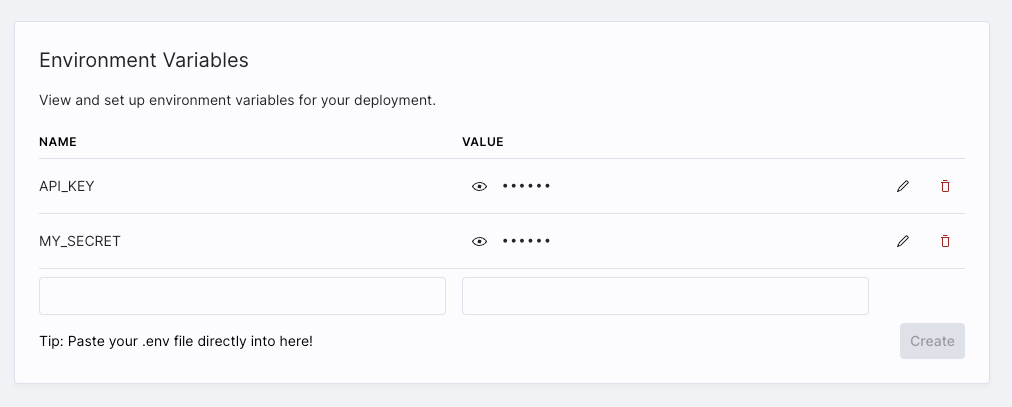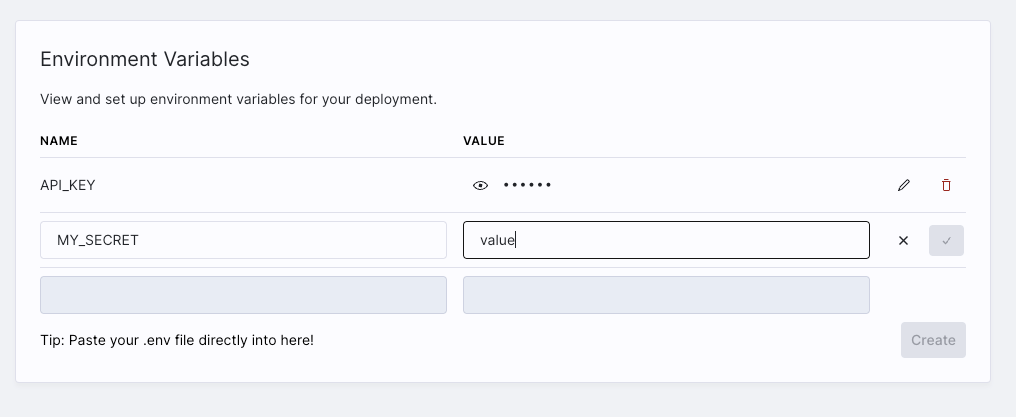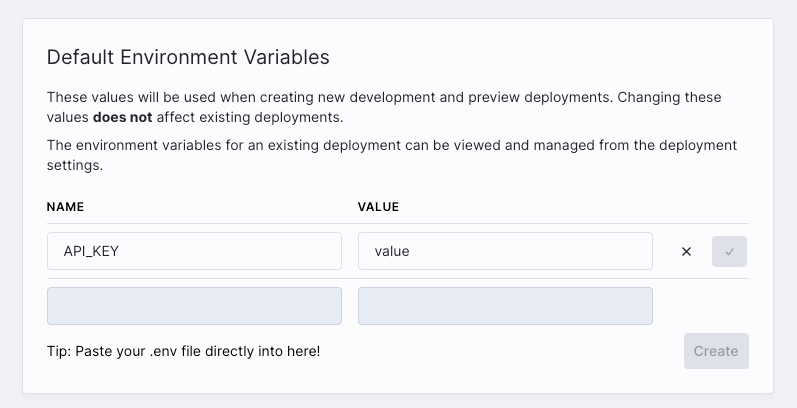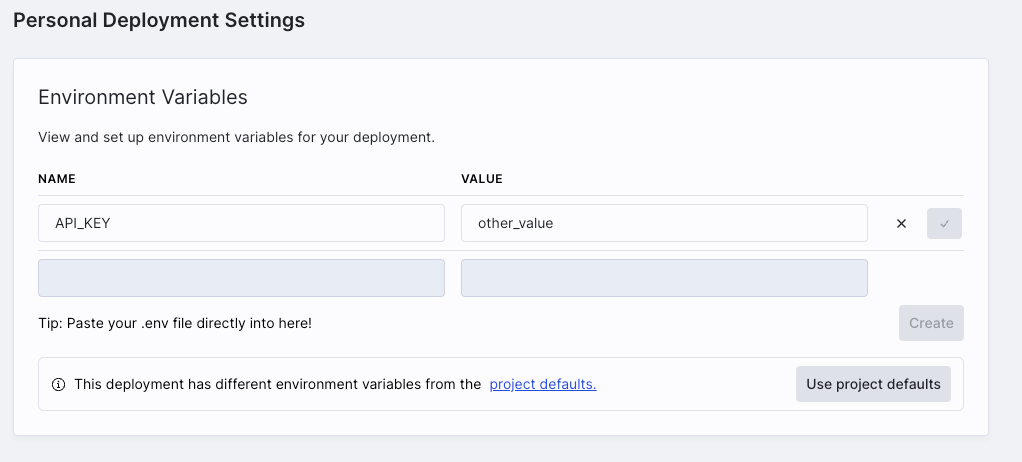Environment Variables
Environment variables are key-value pairs that are useful for storing values you
wouldn't want to put in code or in a table, such as an API key. You can set
environment variables in Convex through the dashboard, and you can access them
in functions using process.env.
Setting environment variables
Under Deployment Settings in the
Dashboard, you can see a list of environment variables in the current
deployment.

You can add up to 100 environment variables. Environment variable names cannot be more than 40 characters long, and they must start with a letter and only contain letters numbers, and underscores. Environment variable values cannot be larger than 8KB.
You can modify environment variables using the pencil icon button:

Environment variables can also be viewed and modified with the command line.
npx convex env list
npx convex env set API_KEY secret-api-key
Using environment variables in dev and prod deployments
Since environment variables are set per-deployment, you can use different values
for the same key in dev and prod deployments. This can be useful for when you
have different external accounts you'd like to use depending on the environment.
For example, you might have a dev and prod SendGrid account for sending emails,
and your function expects an environment variable called SENDGRID_API_KEY that
should work in both environments.
If you expect an environment variable to be always present in a function, you
must add it to all your deployments. In this example, you would add an
environment variable with the name SENDGRID_API_KEY to your dev and prod
deployments, with a different value for dev and prod.
Accessing environment variables
You can access environment variables in Convex functions using
process.env.KEY. If the variable is set it is a string, otherwise it is
undefined. Here is an example of accessing an environment variable with the
key GIPHY_KEY:
function giphyUrl(query) {
return (
"https://api.giphy.com/v1/gifs/translate?api_key=" +
process.env.GIPHY_KEY +
"&s=" +
encodeURIComponent(query)
);
}
Note that you should not condition your Convex function exports on environment variables. The set of Convex functions that can be called is determined during deployment and is not reevaluated when you change an environment variable. The following code will throw an error at runtime, if the DEBUG environment variable changes between deployment and calling the function.
// THIS WILL NOT WORK!
export const myFunc = process.env.DEBUG ? mutation(...) : internalMutation(...);
Similarly, environment variables used in cron definitions will only be reevaluated on deployment.
System environment variables
The following environment variables are always available in Convex functions:
CONVEX_CLOUD_URL- Your deployment URL (eg.https://dusty-nightingale-847.convex.cloud) for use with Convex clients.CONVEX_SITE_URL- Your deployment site URL (eg.https://dusty-nightingale-847.convex.site) for use with HTTP Actions
Project environment variable defaults
You can set up default environment variable values for a project for development and preview deployments in Project Settings.

These default values will be used when creating a new development or preview deployment, and will have no effect on existing deployments (they are not kept in sync).
The Deployment Settings will indicate when a deployment has environment
variables that do not match the project defaults.
